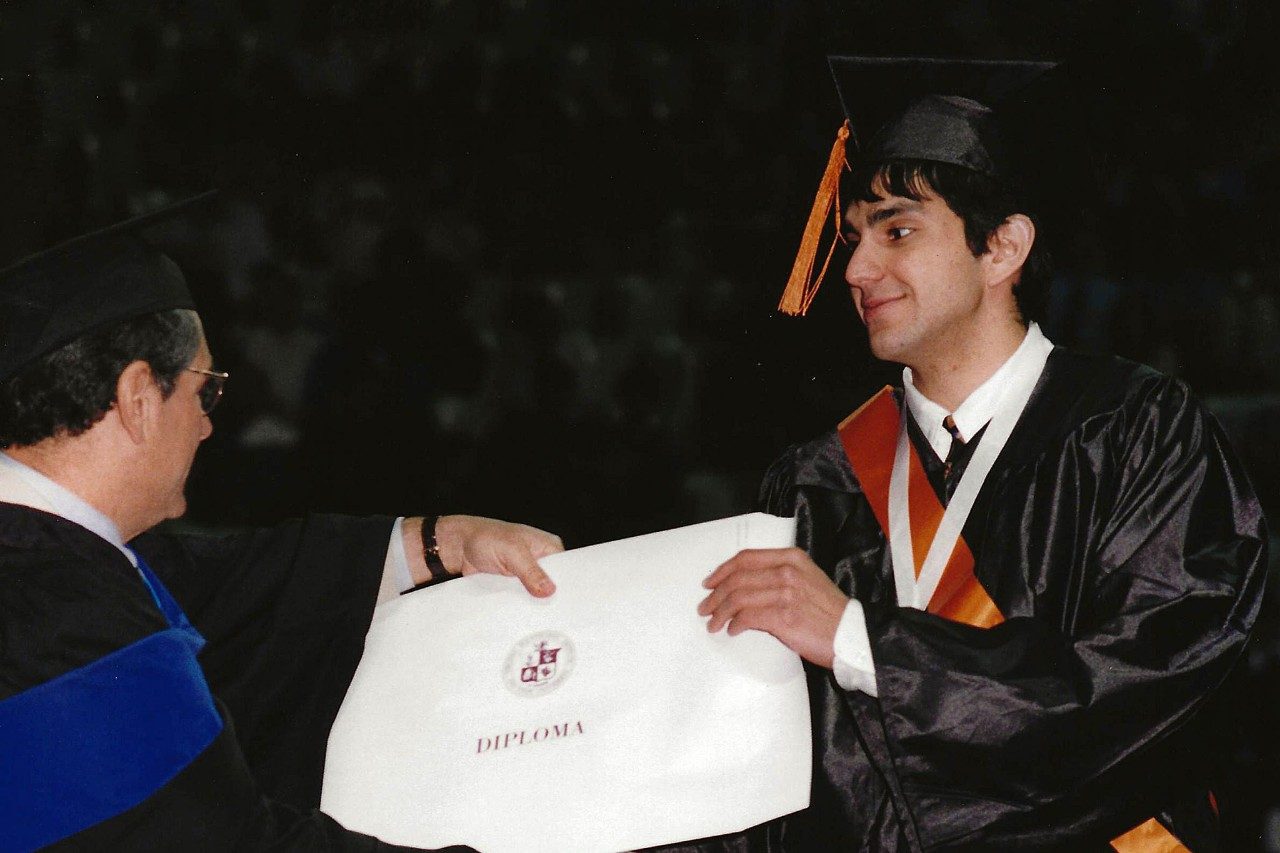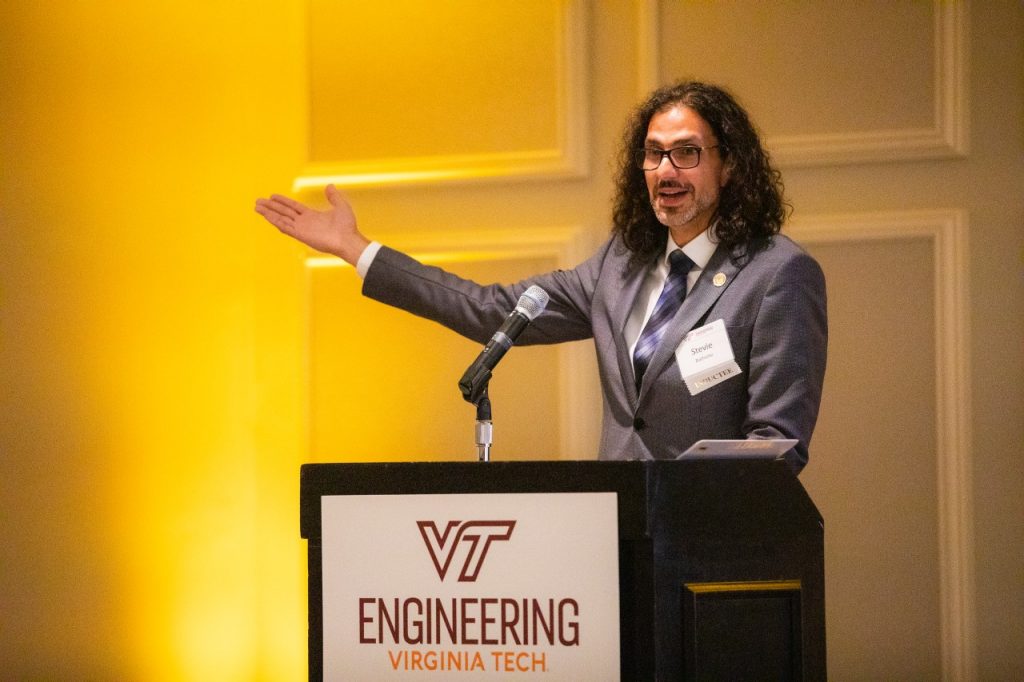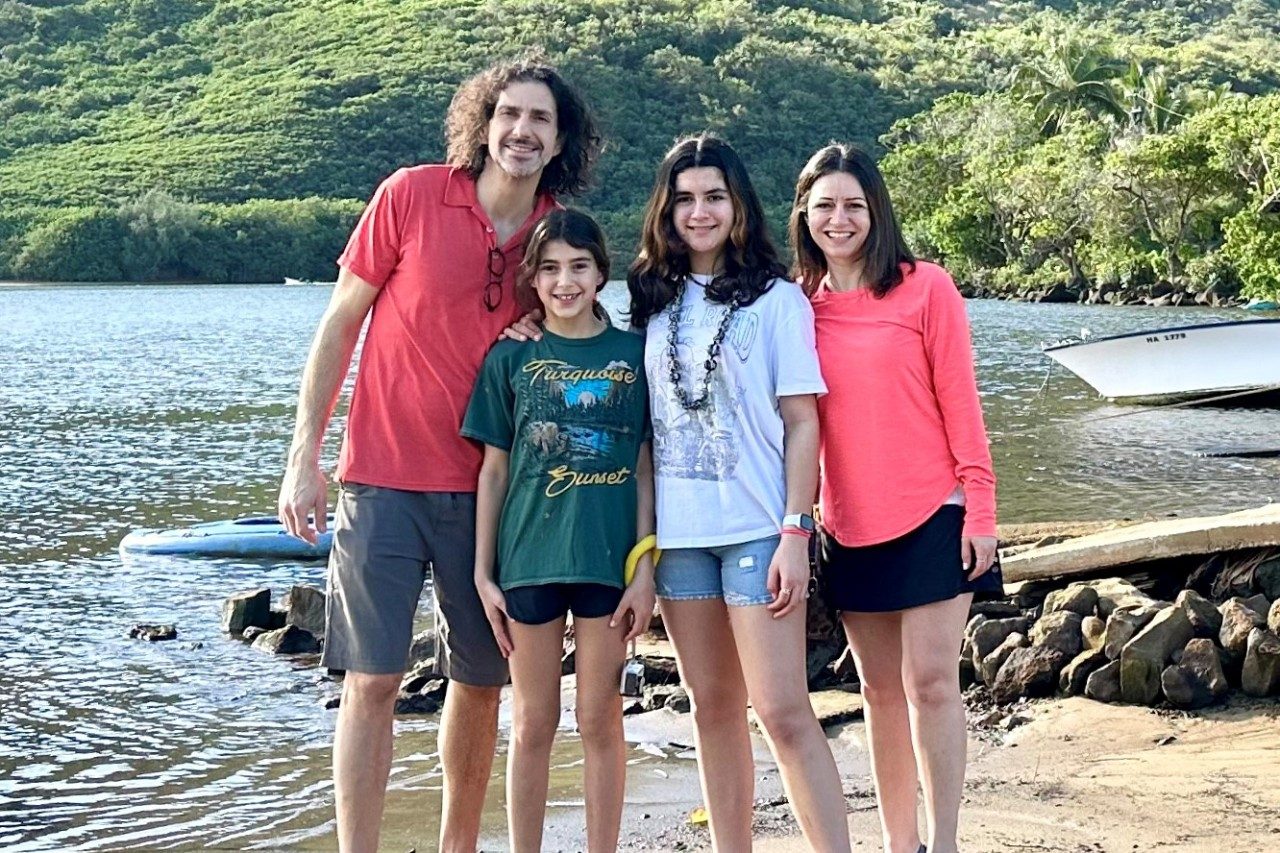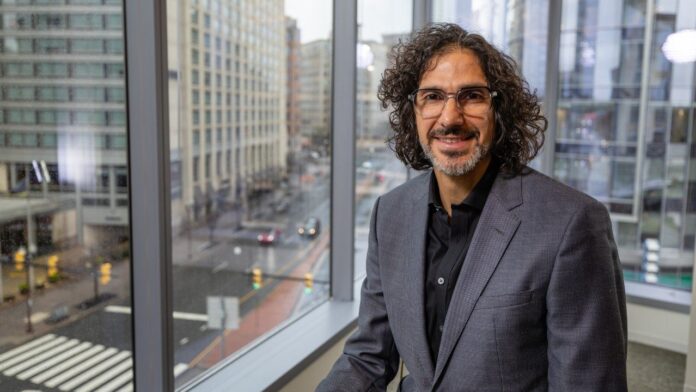Since the turn of the millennium, Steven Bathiche ’97 has led the Microsoft Applied Sciences Research Group in creating new technology, like inventing the Surface series, or building new artificial intelligence (AI) tools for staple Windows software and the Office apps.
And it all began with a simple flier in Whittemore Hall at Virginia Tech.
As an electrical engineering student, Bathiche was happily studying robotics, psychology, and biology when, in 1994, he walked past a bulletin board advertisement for a scholarship funded by Microsoft. After chatting with mentors like Raymond Dessy, a Virginia Tech chemistry professor at the time, Bathiche applied and started the first of three internships for the technology company.
After adding one master’s degree in bioengineering from the University of Washington, Bathiche officially joined Microsoft in 1999 as a director of research. Over the next two and a half decades, Bathiche and his multi-disciplinary team worked together to create beneficial technologies, like the very first Surface device in 2007, which started out as a tabletop computer with cameras to track hand interaction.
We sat down with the 2022 Academy of Engineering Excellence inductee via a Microsoft Teams meeting (of course) to chat technology, teamwork, and Virginia Tech.
Fast Facts
Clubs/Organizations: Solar Car at Virginia Tech, marching and concert band (playing the clarinet), intramural basketball, Chinese Asian Society, NSBE
Favorite Professor: His mentor, Raymond Dessy, emeritus professor in the Department of Chemistry
Favorite Class: computer engineering, computer science, and microcontrollers
Favorite memory: Hanging out after class with his friends in the residence halls and eventually, his townhome in Pheasant Run
What really got you connected to engineering as a potential career?
I’ve always naturally leaned towards engineering and sciences, without really much encouragement. As a kid I liked to build things, take things apart, and break them to understand how they worked.
Did you put it back together once you broke it?
Sometimes, not always. But I would definitely try to build new things.
I remember in late elementary school or early junior high, I was in physics class and they showed us a Van der Graaff generator, which is the machine that develops static electricity. A few weeks later I decided I wanted to build a Van der Graaff generator just from the parts I had at home like Lego pieces, my mom’s pots and pans, and some rubber bands. I was able to build the generator, and it was a cool moment of realizing, “Ohh, I can do this stuff!”
Then when I was in high school, I was very interested in robotics and would build robots and build circuits, and small computers, literally from scratch from gates and chips and wire them up.

Did your early engineering instincts lead you to choosing Virginia Tech?
Definitely. I went to high school in Ashburn,Va, and it was well-known that Virginia Tech was the best engineering school if you wanted to do this “engineering stuff.” It was an easy choice.
You’ve lived and traveled all over the world. How do you think the variety of cultures you’ve experienced has impacted your approach to engineering or solving problems for people at Microsoft?
To be a great engineer, inventor, and scientist, you really need to have diverse influences, both in thinking and interacting with other people and cultures. How people do things differently and think differently can be an asset in solving problems. I’ve been lucky enough that I was able to get that exposure as a young kid and in many ways it influenced how I work, how I think, and how I approach people. For the most part it gives me a worldly view on situations, rather than a microscopic view. All of that helps today; I was lucky enough to be able to get that exposure. It’s not easy as a kid to move around every two or three years. You start over from the beginning, but I got a lot of exposure and understanding about the world that I wouldn’t have otherwise.
You’ve been at Microsoft for more than two decades. In that time, what have you learned from them about developing technology?
Microsoft taught me patience and persistence in regards to creating new things. Timing is oftentimes more important than the actual invention. It’s not good enough just to be smart and invent something new. There’s an art to building a solution and a product, and you have to put those components together. It’s great for me because I’ve always enjoyed the arts and the sciences. At Virginia Tech, I was able to pursue both; at the University of Washington, I was able to pursue both. In life, I try to pursue both. By having those two disciplines together, and seeing the impact of art on science and engineering, I’ve seen how an interdisciplinary approach can make the difference between a somewhat mediocre product versus an invention that is useful and impactful for many people.
You’ve built your research group into a team of 150 people. How do you all work together to develop groundbreaking technologies and products like the Surface?
Together we approach and solve problems and try to invent things. Most of the AI and the new technology coming out in Windows last year and this year is being fed by my team. A lot of the Windows operating system stuff around AI, we developed; for example, even the algorithms that we’re using here today on this Teams call.
One of my core philosophies is being able to solve problems holistically. We’re a multi-disciplinary team because in product making and invention, it’s important to have various perspectives on complex issues. I want to try to solve problems from all points of view; sometimes it’s difficult to solve a problem in one field, but it’s easier to solve it in another. I try to create an environment where we can mix these different fields together to meet a need, and that allows us to solve a problem more optimally, more efficiently, and more delightfully.
Leadership is such an important skill for our Hokies to develop. How have you been able to build your leadership skills?
I follow a very specific leadership style I’ve developed over the years. As a leader, you want to listen, and you want to support those who work with you. Oftentimes people think that if you’re a leader, your people work for you. And that’s not how I see it. If you’re a leader, you work for your people.
You support them to enable them to do their jobs, and in doing so, they get a lot of enjoyment and encouragement by being in the limelight and having the opportunity to grow. There’s actually a good quote from Simon Sinek we often use, “You want to create an environment of autonomy, mastery, and purpose.”
Autonomy means letting each team member stretch their creativity. Mastery is achieved when people want to continue mastering their craft and have the room to do so. They can’t just be a cog in a machine. They have to understand the entire machine. And that is really important because if they understand the purpose of what they’re doing at a high level, they may know a better way of doing something. When your people are good, you have to let them do their thing.

Microsoft is proactive about responsibility when creating products or solutions. But when dealing with the rapid timeline of technology generation, does that hesitancy impact how you do your work?
One thing Microsoft is excited to do is to help businesses and people improve efficiency, by helping with those tasks that are hassles – we call them hassle maps. We make it much easier to get them accomplished, and also much more accurately.
As far as safety, we’re very cautious. We have a system in place for safety and responsibility in all sorts of areas to make sure our products achieve the right security status. We won’t release products that could cause harm. We even say internally that we are much more careful to ensure that what we put out is safe to use.
If something is not responsible and safe, it’s not just that it’s not responsible or safe, but people won’t use it, or people will be worried about it. Privacy, security, responsibility, and safety are the main gates before any of this technology really makes it out into the world, and it won’t if it doesn’t clear those gates.

What are you most excited for?
I’m excited for the ways computers will make our lives easier and more productive. I think the tools that we’re developing today will enable us to do that. Life will be easier. People will have better access to medicine, healthcare, and legal care because of AI. People will be able to perform their job more easily because of AI.
At the end of the day, AI provides more opportunity to continue elevating our society and culture. That is what tools like the Surface really end up doing – they build on each other, and along the way we become a more sophisticated society.
By Niki Hazuda
Video by Craig Newcomb

